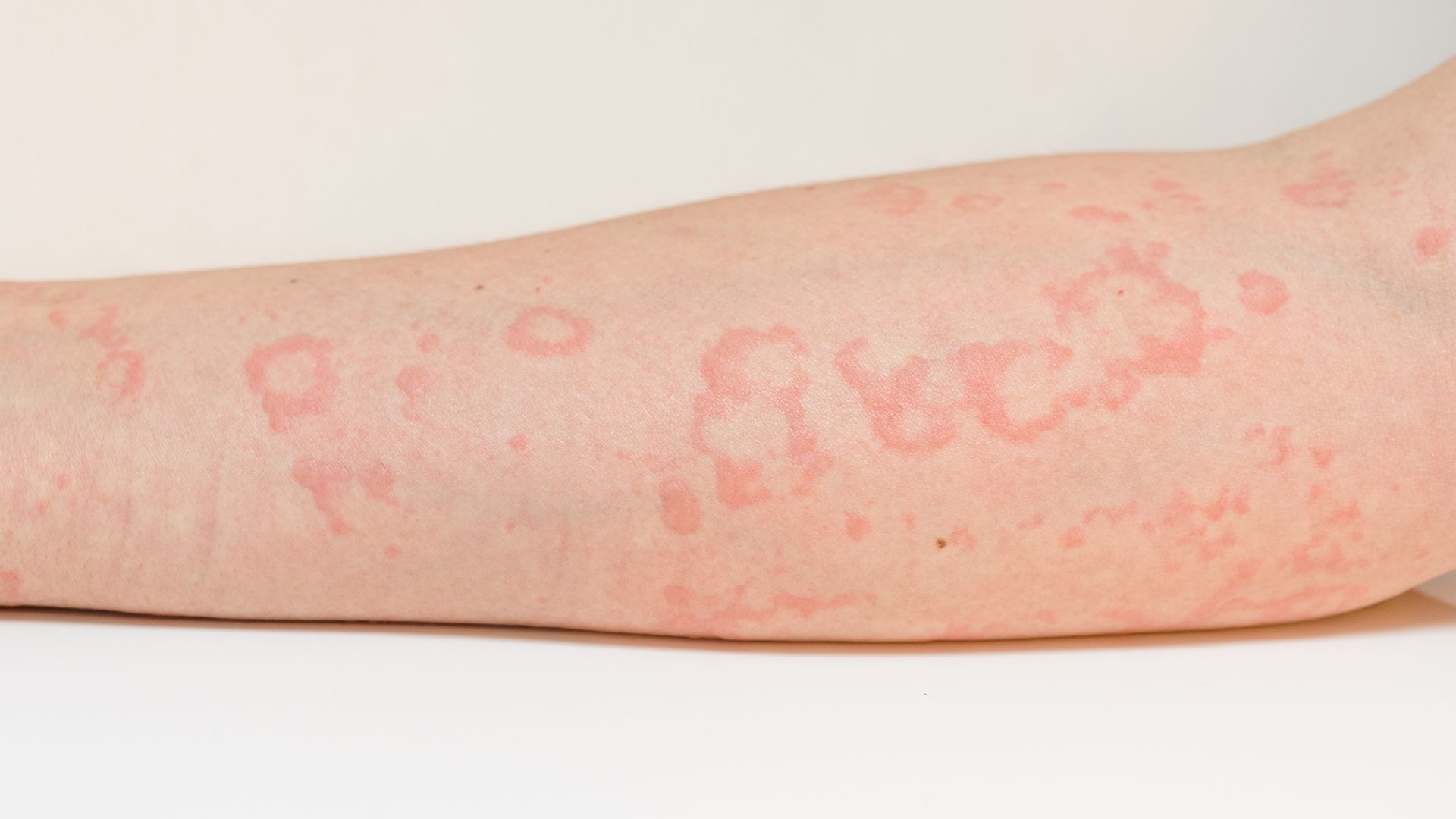Updated on November 17, 2023
Living with chronic hives can be frustrating and challenging. Known by the clinical name chronic urticaria, chronic hives recur and persist for a period of six weeks or longer. (Hives that resolve in less than six weeks’ time are categorized as acute urticaria.) There are two major categories of chronic hives:
- Chronic inducible urticaria (CIndU). With this type, hives occur in response to a physical trigger, such as cold temperatures or pressure against the skin. This type is also sometimes called chronic physical urticaria.
- Chronic spontaneous urticaria (CSU). With this type, symptoms have no identifiable trigger, and occur for no apparent reason at all. This type was previously known as chronic idiopathic urticaria. The majority of cases of chronic hives are CSU.
People who experience recurring or long-lasting hives are encouraged to keep a symptom journal. Keeping a symptom journal is useful for several reasons. It can help you identify patterns in your symptoms, discover or rule out potential triggers, track your progress with treatment, better communicate with your healthcare provider, and gain a better understanding of your overall health.
How to keep a symptom journal
A symptom journal can take any form: Use a notebook and pen, keep a text file on your computer, or download an app that helps you track symptoms. The most important thing is that the journal you choose works for you.
Here are 15 ideas for what to track in your symptom journal:
- Symptoms. First and foremost, use your journal to keep track of your hive symptoms, noting appearance, changes, and severity.
- Illness, infections, or allergies. These can trigger hives.
- Food. A record of the foods you eat can be useful information for your healthcare provider. Depending on where you are in your diagnosis, you may be tested for food allergies or sensitivities, but do not make any major dietary changes without the guidance of a healthcare provider.
- Places. Write down the places you go each day. Hives can result from exposure to environmental factors.
- Weather. Temperature, humidity, sunlight, and pollen can all trigger hives.
- Activities. Keep track of what you do, including exercise, going outdoors, and household chores.
- Bug bites and stings. A bite or a sting can trigger hives.
- Animals. Did you play with a pet? Pet dander can trigger hives for some people.
- Clothing. Tight clothing may trigger inducible hives, and rough fabrics (like wool) may aggravate symptoms. Write down what you wear.
- Habits. Be honest about things like smoking or using other nicotine products, alcohol use, and recreational drug use.
- Stress. Make note of your stress level. Emotional and mental stress are a known trigger for hives. Persistent hives can also be frustrating and stressful. Your healthcare provider can advise you on strategies for managing stress.
- Mood and anxiety. Anxiety and depression are more prevalent among people with chronic hives. Keep track of how and what you are feeling day to day. This is an important part of your health, and something that everyone should discuss with their healthcare provider.
- Sleep. Hives can interfere with sleep. Keep track of the number of hours you sleep, difficulties falling asleep, how often you wake up in the night, and how rested you feel in the morning.
- Medications. Keep a list of all the medications you take, including medications for other health conditions, over-the-counter medications, and supplements.
- Chronic hive treatments. There are a number of different therapy options for chronic hives. Make note of the times you take your medications, any difficulties with adhering to your treatment plan (including the cost of medication), and any side effects you experience. Note that about half of those with chronic hives will stop experiencing flare-ups within a year.
Keep your journal in an accessible place so you can easily record your observations. Remember to take it with you to healthcare appointments, too, so you can refer to the information easily.






